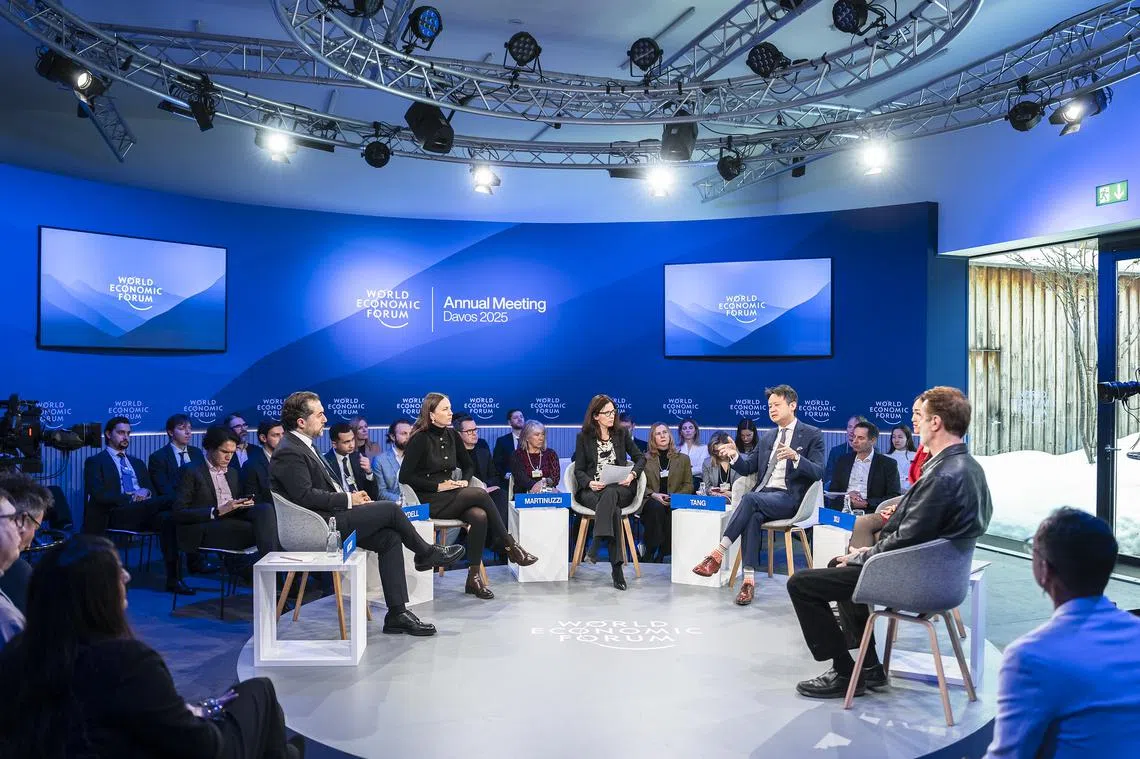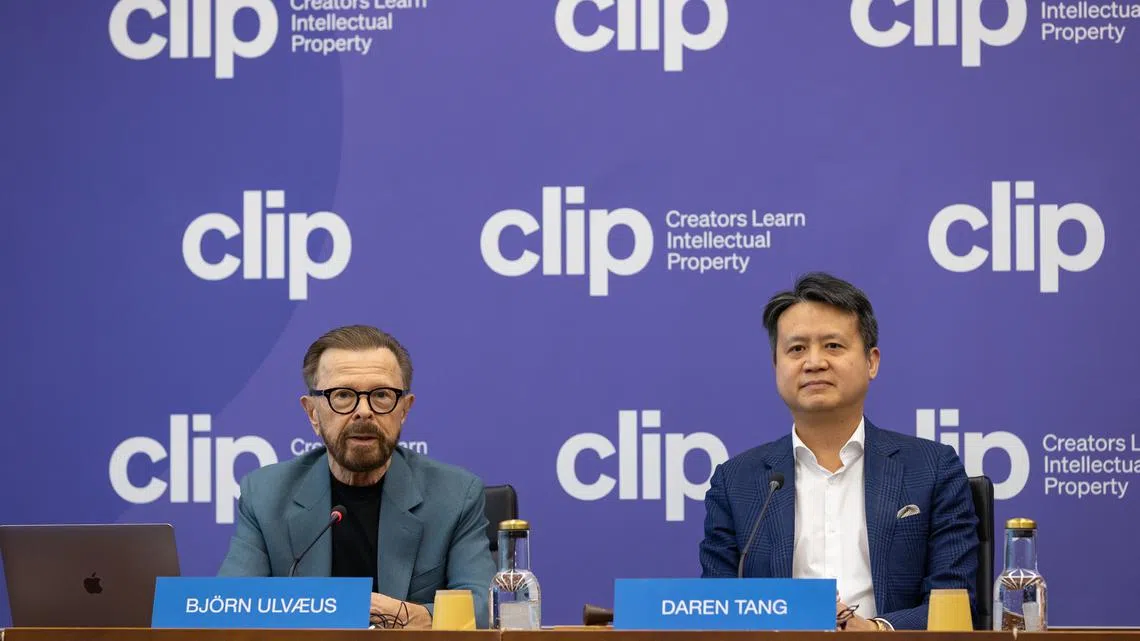From Singapore to the world: Daren Tang’s mission to break stereotypes at UN agency Wipo
The director-general of the World Intellectual Property Organization reflects on his role and the nation’s place on the global stage
[SINGAPORE] Daren Tang may not be a household name. Nor, for that matter, the World Intellectual Property Organization (Wipo) – the United Nations (UN) agency he heads as its director-general.
Yet, the work that Geneva-based Tang and his 1,700-strong team from almost 130 countries do has implications for much of what we encounter in our daily lives.
Simply put, Wipo provides services to protect and promote creations of the mind – or intellectual property (IP) – around the world, thereby safeguarding creative outputs, from photographs, music and logo designs, to the latest mobile phone innovations and lifesaving drugs.
Tang – the first Singaporean to head a UN agency – has sought to make a complex matter accessible and relevant to the layman.
“When I took over the helm of Wipo in 2020, I felt strongly that IP was so important to our world, and yet so misunderstood or ignored,” says the former senior state counsel and chief executive at the Intellectual Property Office of Singapore. “IP had an image problem – it was seen as a set of highly technical laws of interest only to experts and specialists and largely serving the interests of a small group of people.”
A wider perspective
Tang immediately set out to articulate a new vision for IP as an important business and financial asset that helps innovators, entrepreneurs and creators bring ideas to market.

He wanted to take IP to the grassroots so more on the ground could benefit from it, especially traditionally underserved groups such as youth, women, small and medium-sized enterprises (SMEs) and startups. He also intended for it to become a powerful catalyst for jobs, investments, growth and sustainable development for all countries.
It was a big vision. But with Wipo member states’ support, there have been concrete results. Some 400,000 youth, 300,000 women and 200,000 SMEs have received training and support via projects and programmes, helping them protect their ideas, earn a living and be more successful entrepreneurs.
Tang also launched Wipo’s first ever IP Gender Action Plan in 2023 and IP Youth Empowerment Strategy in 2024. And the Wipo Academy has trained 620,000 people over the past five years, becoming the world’s largest IP training institute.
“At the national level, we have stepped up our support to governments, national authorities and other stakeholders to not just pass IP laws, but build vibrant innovation ecosystems,” he says.
Given that Wipo works with multiple stakeholders – including national governments, businesses, inventors, researchers and designers – from its 194 member states, all this is done while managing complex political dynamics.
“In a nutshell, the job is one-third being the chief diplomat, one-third being the chief policy officer and one-third being the CEO,” Tang tells The Business Times.
No walk in the park
A highlight is that under his watch, Wipo in 2024 notched an historic achievement by concluding two new treaties in one year. Both the Wipo Treaty on IP, Genetic Resources and Associated Traditional Knowledge and the Riyadh Design Law Treaty took more than 20 years of negotiations.
Tang hailed it as a victory for multilateralism in an environment of rising geopolitical tensions.
“I felt like a referee in an intense sporting match, helping to keep the process moving and the rules of engagement fair and neutral, while working with all towards a common end,” he recalls of the round-the-clock work, which concluded with sleep-deprived negotiators from around the world bursting into loud applause.
It was, he describes, “incredibly emotional”.

Tang also relished the quietly satisfying highs of ordinary people whose lives he says have been touched by Wipo’s work; these include a female Ugandan entrepreneur whom the agency mentored, and a young Chilean scientist who brought her invention to market.
But the geopolitical challenges of running such a large and diverse agency remain, with consensus among member states becoming even more difficult.
Despite the economic headwinds, Tang has ensured that Wipo – which is unusual among UN agencies for being self-funded, mostly from the fee-paying services it runs – remains financially healthy. In the last five years, the agency has consistently reported financial surpluses, while its assets have grown some 83 per cent to 710 million Swiss francs (S$1.13 billion) last year.
“That means running a tight ship, with a focus on efficiency, results and impact,” says Tang. These, incidentally, are traits very much associated with Singapore, a nation with a reputation for being friendly but competent, and a steadfast supporter of multilateralism.
Count on me, Singapore
While Wipo’s director-general is judged on their own merits, it helps when their home country is seen as “credible, reliable and dynamic”, says Tang.
Singapore recently nominated him for a second six-year term starting 2026, something he considers “a deep honour”. “I have lived my entire life in Singapore, and it has fundamentally shaped who I am and how I have tried to transform Wipo,” he says.
Growing up in a multi-ethnic, multilingual and multicultural society, where Asian values mesh with Western norms, also helps him engage and build relationships with a wide range of stakeholders from around the world.
“As a Singaporean, we’re trained to focus on being pragmatic and delivering results, rather than getting entangled in endless discussions or ideological debates,” he says. His focus is on tangible, concrete and visible outcomes, “especially in an environment where people increasingly do not see the value of UN agencies or don’t understand what we do”.
Home to the only regional Wipo office in the world, Singapore has been doing well in Wipo’s Global Innovation Index, most recently placing within the top five. It’s also seen as an example of how IP can be harnessed as a catalyst for growth and development, Tang notes.
As the nation celebrates SG60, he is grateful for the many opportunities he and other Singaporeans have.
“While we often think that the world has become more complex and troubled, I don’t think the external environment at the time of our independence was any simpler,” he reflects.
“We just have to continue pushing boundaries, taking risks to create and build something amazing that makes people want to come here and experience Singapore for themselves.”
His wish this National Day? That more Singaporeans will step up to engage and contribute to the world, especially given that the nation’s achievements are admired by and inspiring for many others.
“Don’t just play in the local pond,” he urges. “Plunge into the ocean.”
Decoding Asia newsletter: your guide to navigating Asia in a new global order. Sign up here to get Decoding Asia newsletter. Delivered to your inbox. Free.
Copyright SPH Media. All rights reserved.

